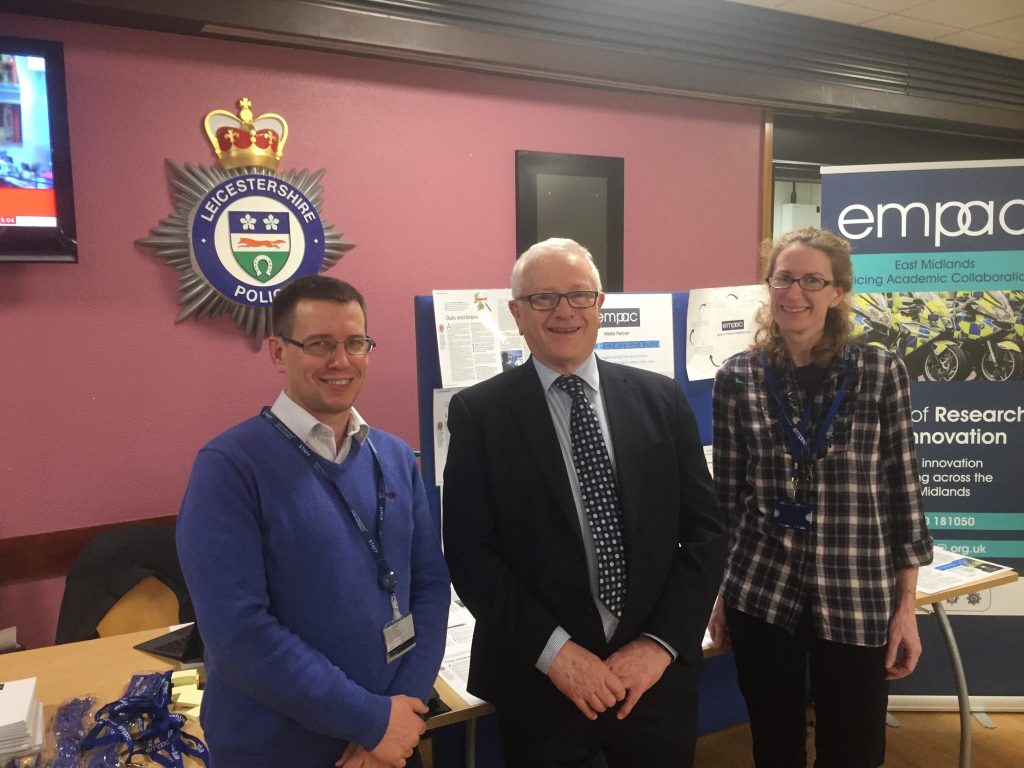EMPAC’s first Research Cafe, in February, stimulated a lot of new connections and showed it really is good to talk. And some coffee and cake helps too! Thanks are due to the organising of Chief Inspector Dan Pedley and Graham Pickering in helping bring people together. There’s a second event on 29th May in Derbyshire, so get your name down! https://empac.org.uk/research-cafe-29th-may-2020/
The event was kindly hosted by Leicestershire Police and was supported by the College of Policing National Police Library and the What Works Centre. A number of Universities were represented from within and beyond the East Midlands region, allowing police professionals to speak directly to academics about potential new research ideas.
There was a diverse turn out, from the Chief Constable and Police and Crime Commissioner through to new recruits just weeks into training. There were active debate about the new form of graduate police education, stimulated by a recent blog, https://empac.org.uk/educating-bobby/ and discussion about the recently released new book on evidence based policing: Critical Reflections on Evidence-Based Policing, edited by Simon Holdaway, Nigel Fielding and Karen Bullock, being promoted by the National Police library.
Past Police Professional articles were available for visitors to catch up on the wealth of research that has been taking place across the region, including the evidence base on crime prevention, the role of Independent Advisory Groups, and the benefits of restorative justice.
The University of Leicester were able to update on their progress on knife crime and leadership research. Nottingham Trent University were able to discuss some of their latest work on understanding PTSD in policing to support wellbeing. Loughborough University were able to discuss early plans to enhance progressive policing and innovation. De Montfort University were able to show how they were delivering their new policing degree. Sheffield Hallam University were able to discuss their developments around ethical situational decision making in policing.
People Zones was a popular topic too – an initiative driven by Willy Bach, Police and Crime Commissioner, and being evaluated by Professor Darren Smith of Loughborough University. You can find out more about this impressive approach to place-based crime reduction first hand at a Nottingham Trent University hosted event on 28th February:- https://empac.org.uk/getting-ahead-of-fms-demand-working-together-on-best-evidence-and-innovation/.
If you can, get along to the next research cafe for a cuppa and a chat!



Comments